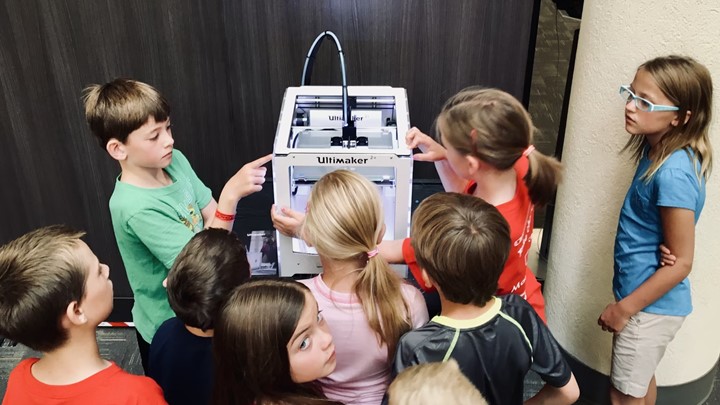Last Updated on March 6, 2025 by Uncle Pat Ugwu
AI has dramatically transformed various industries, including education, promising increased efficiency, personalization, and access to vast knowledge repositories. Recognizing the negative effects of artificial intelligence in education is of utmost importance and requires thoughtful consideration.
We shall look at these negative effects of artificial intelligence in education and examine how it impacts students, teachers, and the overall learning environment. Throughout this exploration, we’ll draw on expert insights and credible sources to provide a comprehensive understanding of this pressing topic.
Before we dive in, let me inform you that we have a YouTube Channel dedicated to educational technology and digital tools. Please subscribe to help us grow.
Negative Effects of Artificial Intelligence in Education
As we are preparing to look into the disadvantages of artificial intelligence in education, let me remind you that we have previously written about the advantages of artificial intelligence in education.
Now, let’s dive in.
1. Loss of Human Connection
One of the most significant concerns surrounding AI in education is the potential loss of human connection. Traditional classrooms foster deep interpersonal relationships between students and teachers, providing emotional support and personalized guidance. In contrast, AI-driven learning experiences may lack the empathetic and compassionate touch that human instructors offer, potentially affecting students’ emotional well-being and engagement. Please read AI Ethics’ by Mark Coeckelbergh.
2. Data Privacy and Security
AI systems in education collect and process vast amounts of student data to personalize learning experiences. This raises valid concerns about data privacy and security. Educational institutions must implement robust measures to safeguard sensitive information from unauthorized access or breaches, ensuring that students’ data remains protected.
3. Bias and Fairness
The effectiveness of AI algorithms is determined by the quality of the data used to train them. Unfortunately, if the data contains biases, such as gender or racial discrimination, AI systems can inadvertently perpetuate these prejudices in educational settings. Thus, ensuring fairness and inclusivity in AI algorithms presents a crucial challenge for educators and developers.
4. Overdependence on AI
While AI can enhance learning experiences, over-reliance on technology may hinder students’ critical thinking and problem-solving skills. Relying too heavily on AI-driven solutions might reduce students’ ability to think creatively and independently. Those who use electronic calculators as opposed to grandfathers who conducted calculations mentally experienced this.
5. Job Displacement for Educators
The automation potential of AI raises concerns about job displacement for educators. While AI can streamline administrative tasks, it cannot replace the unique insights, creativity, and adaptability that human teachers bring to the classroom. Therefore, integrating AI should complement, not replace, human instructors.
6. Lack of Emotional Intelligence
Emotional intelligence plays a pivotal role in education, nurturing social skills, and empathy. However, AI lacks emotional intelligence and cannot fully comprehend and respond to students’ emotions as human teachers can. This deficiency might hinder the development of student’s emotional intelligence and interpersonal abilities.
7. Limited Customization
Despite promising personalized learning experiences, AI systems may still struggle to provide truly customized education for every student. Relying excessively on AI-driven recommendations might lead to a one-size-fits-all approach, neglecting individual learning styles and needs. This can be a huge negative effects of artificial intelligence in education.
8. Accessibility and Equity
While AI-driven education offers numerous benefits, it may not be accessible to all students, particularly those from underprivileged backgrounds. This digital divide could widen, creating an equity gap between students who have access to advanced AI technologies and those who do not.
9. Tech Glitches and Reliability
Depending heavily on AI introduces the risk of technical glitches and system malfunctions. Unforeseen errors in AI-driven learning platforms could disrupt the learning process and undermine students’ confidence in the technology.
10. Impersonal Assessment and Feedback
Automated grading and assessment systems may lack the nuanced feedback that human teachers provide. Students may miss out on tailored guidance and encouragement to enhance their academic performance as a result.
11. Distraction and Multitasking
Integrating AI technology in the classroom could lead to distractions and multitasking. Students might be tempted to explore unrelated content or use AI devices for non-educational purposes, hampering their focus and learning outcomes.
12. Ethical Dilemmas
The use of AI in education raises ethical dilemmas. For instance, should AI track students’ browsing history to personalize content, and if so, how should data be used ethically?
13. Teacher Training and AI Literacy
Effective incorporation of AI into teaching methods requires educators to receive proper training in AI literacy and its applications in education. This will help them utilize AI tools and technologies to enhance the learning experience. We recommend this logic book for children.
14. Expensive Implementation Costs
Implementing AI in education involves significant costs for schools and institutions. Not all educational settings may have the financial resources to adopt advanced AI solutions, potentially leading to unequal opportunities for students.
15. Loss of Human-Led Classroom Dynamics
AI integration might lead to a shift in traditional classroom dynamics. Human-led discussions, debates, and interactions could be replaced by automated interactions, potentially altering the overall learning experience.
I will recommend you read Nertherland’s report on who should educate children about AI as published by statista.com.
Frequently Asked Questions (FAQs)
Does AI in education hinder emotional development in students?
While AI does offer various benefits, it may hinder emotional development in students due to its lack of emotional intelligence, which human instructors possess. Emotional development often relies on human connections and interactions.
Can AI completely replace human teachers in the future?
While AI can certainly augment teaching practices, it is unlikely to replace human teachers completely. AI and human instructors can work together to create a more enriched and effective learning experience.
How can schools address the privacy concerns related to AI usage?
Schools must create stringent data privacy policies and follow data protection regulations to handle privacy issues. Regular audits and assessments can help identify and rectify potential privacy breaches.
Is AI-driven education accessible to all students?
Unfortunately, AI-driven education may not be accessible to all students due to the digital divide. Schools and policymakers must work diligently to bridge this gap and ensure equitable access to technology.
Can AI personalize learning experiences effectively?
AI can indeed personalize learning experiences to some extent, but it might not fully cater to individual learning styles and preferences. Human intervention remains essential for comprehensive personalization.
How can educators prepare for AI integration in the classroom?
Educators should receive proper training in AI literacy and its applications in education. This will empower them to effectively incorporate AI tools and technologies into their teaching methods. I will recommend this Sennheiser SC 165 USB Headset.
Final Thoughts
Finally, though AI offers the potential to change education completely, there must be a cautious approach to see off the negatives. AI integration into education may amplify the challenge of privacy infringement, inequality, and personalization. In addition, teachers’ roles can be diminished, thus impeding the development of critical thinking and social skills if AI is overused.
Nevertheless, to solve the problem of the negative effects of artificial intelligence in education, equitable access, and balancing technology with human interaction and traditional teaching methods while embracing AI’s benefits. By this means we can utilize the magic of artificial intelligence but subside its negative effects on education establishing an innovative yet humane educational technology setting.







